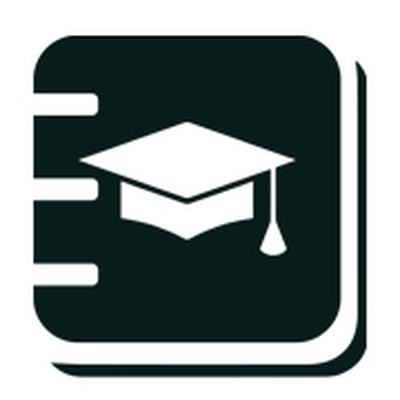Taking efficient notes is a skill that every student should develop. Whether you're attending class in person or watching a lecture online, how you take notes can have a direct impact on your ability to complete homework efficiently. Good notes not only help you understand and retain the material but also save you time when tackling assignments. In this article, we’ll explore the best methods for taking notes and how these strategies can improve your homework performance. If you need extra help, you can always visit a homework help hub or even consider whether to Pay Someone To Do Your Homework when time is tight.
The Importance of Taking Efficient Notes
Notes are a reflection of what you’ve learned, and they serve as a foundation for your homework and exam preparations. Efficient note-taking allows you to:
- Enhance Retention: Writing down key points helps you internalize the material. The act of note-taking itself solidifies learning.
- Stay Organized: Well-organized notes make it easier to locate information quickly when completing homework.
- Improve Focus: Actively engaging with the material while taking notes helps you stay attentive during class.
- Reduce Study Time: When you have clear and well-structured notes, you won’t need to spend extra hours re-learning concepts before an exam or homework session.
Effective Note-Taking Methods
While there are numerous ways to take notes, some techniques are proven to be more efficient than others. Below are some strategies that can help you take better notes and ultimately improve your homework completion.
1. The Cornell Method
The Cornell Method is one of the most popular and effective note-taking techniques. This method involves dividing your paper into three sections:
- Cue Column: A narrow column on the left side, where you jot down main points, questions, or keywords.
- Notes Section: The larger section on the right where you write down the lecture content in detail.
- Summary: A space at the bottom where you summarize the main points of the lesson.
Using this method helps organize information systematically and allows you to quickly review key points when working on homework.
2. Mind Mapping
Mind mapping is a great method for visual learners. It involves creating a diagram with the main topic in the center and branches for subtopics, concepts, and ideas that are connected. This method is especially useful for brainstorming and understanding how different pieces of information fit together.
Mind maps are particularly helpful when you need to work on projects or assignments that require creativity or a broader understanding of a topic.
3. The Outline Method
This method involves organizing your notes in a hierarchical structure, using bullet points and indentations to organize main topics, subtopics, and supporting details. The outline method works well when the information is structured in a logical, sequential way (such as history lessons or textbook chapters).
It’s an easy method to follow when reviewing your notes for homework. The clear separation of concepts makes it easier to find relevant information when completing assignments.
4. Charting Method
If you need to compare and contrast information, the charting method is a great choice. In this method, you create columns for different categories of information and fill in the corresponding data under each heading. This is especially useful for subjects like science, where you might need to compare processes, timelines, or different theories.
Charts help break down complex information into digestible chunks, and they can make it easier to spot patterns or relationships between different concepts.
5. Use Abbreviations and Symbols
While note-taking, it’s helpful to develop a system of abbreviations and symbols to speed up the process. Common abbreviations like “w/” for “with” or “ex.” for “example” can save you time while writing. You can also create your own shorthand based on the subject you’re studying. The key is to find a system that works for you and ensures you can still understand your notes later.
This strategy is especially helpful when you’re in a time crunch, allowing you to capture more information during class.
Tips for Organizing Your Notes
Taking notes is only part of the process; organizing them is equally important. If your notes are disorganized, they may be harder to use when it comes time to complete your homework.
- Use Color Coding: Highlight or underline important concepts using different colors to help differentiate between main points, definitions, examples, and more.
- Review Regularly: After each class, take some time to go over your notes. This will help you reinforce what you’ve learned and allow you to add any missing information.
- Digitize Your Notes: If you prefer digital notes, there are many apps like OneNote, Evernote, and Google Keep that can help you organize your notes. Digitizing your notes also makes it easier to share them with classmates or access them from anywhere.
- Create a Notebook for Each Subject: Keep separate notebooks or folders for each subject. This ensures that your notes are easy to find when doing homework and studying for exams.
How Notes Help with Homework Completion
Once you have efficient notes, you can start applying them directly to your homework tasks. Here’s how:
- Quick Reference: When you’re doing homework, having organized notes means you can quickly find answers and relevant information without wasting time flipping through textbooks.
- Understanding Concepts: Your notes will often have simplified explanations or additional insights that can clarify difficult concepts, making it easier to complete complex assignments.
- Inspiration for Essays or Projects: When working on assignments like essays or reports, your notes can serve as a foundation for your arguments and examples.
If you're struggling to manage your workload, visiting a homework help hub or considering whether to Pay Someone To Do Your Homework might be viable options. Sometimes, outsourcing can free up valuable time for other activities or help you get back on track if you're overwhelmed.
Conclusion
Taking efficient notes is an essential skill that can make a significant difference in your academic performance. By employing effective note-taking methods like the Cornell Method, Mind Mapping, and the Outline Method, you'll improve your ability to understand and retain information. These techniques not only help you stay organized but also save you time when working on homework assignments. Remember, your notes are there to support you, and using them wisely can reduce the stress of homework.
If you're still finding it challenging to manage your assignments or if you need a little extra support, consider visiting a Homework Help Hub or even exploring the option to Pay Someone To Do Your Homework. With the right resources and strategies, you can stay ahead in your studies and complete your homework with confidence.














































